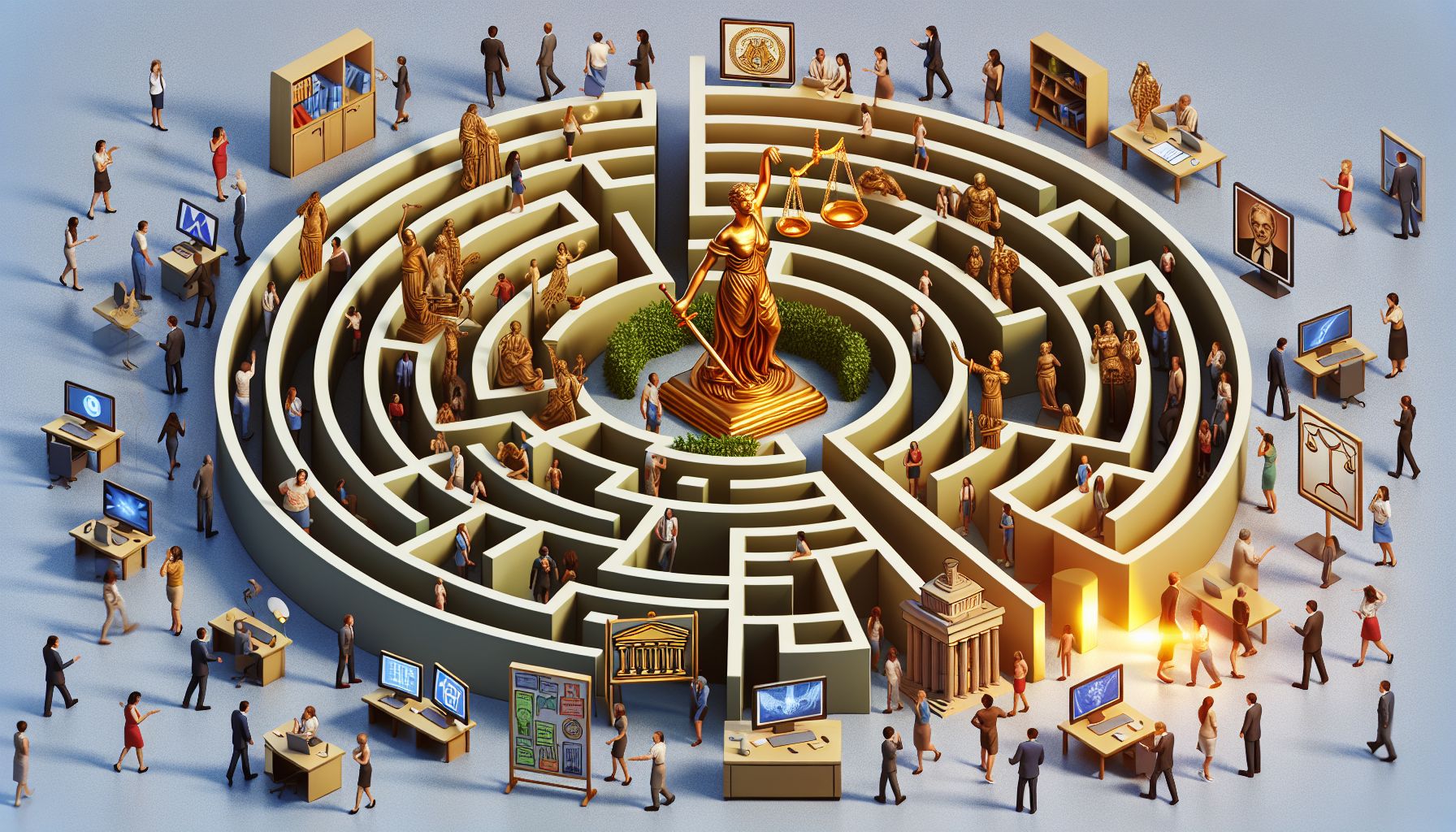Navigating the Legal Labyrinth: The Implications of Groundbreaking Court Decisions on Modern Society
In an era where the world is witnessing rapid advancements across all sectors, the law often finds itself tasked with the ever-challenging role of keeping society in check while adapting to new realities. Legal precedents, those pivotal decisions that shape the course of future rulings, have always been significant beacons, guiding the intricacies of legal interpretation. Their impacts seep into social fabrics, altering perceptions and paving the way for either progressive change or fostering resistance.
Recent legal developments have highlighted the need to scrutinize not just the letter of the law but the spirit as well. Courts are increasingly facing cases that challenge the status quo, pushing the boundaries of traditional legal thought. In this crucible of legal innovation, society must reconcile its deepest values with the outcomes of the courtroom.
The dance between legality and morality plays out dramatically in the realm of technology and privacy. Consider the watershed moments in data protection laws, such as the General Data Protection Regulation (GDPR) that the European Union introduced, influencing global data privacy standards and igniting debates on personal rights versus corporate governance. In the United States, similar conversations are being held around the California Consumer Privacy Act (CCPA) and their implications on national privacy approaches.
Another area rife with legal evolution is the intersection of human rights and national security. Landmark cases balancing individual freedoms against the collective safety have redefined the legal landscape post-9/11. Courts worldwide grapple with antiterrorism measures, wrestling with the dichotomy of upholding human rights while addressing security concerns. The resolution of these debates profoundly affects not just legal policies but also societal trust in the justice system.
Then, there’s the unprecedented legal territory: environmental law. With climate change posing an existential threat, courts increasingly become battlegrounds for environmental justice. Recent cases, such as Juliana v. United States, where young activists sued the government for failing to protect them from the effects of climate change, underscore the law’s burgeoning role in addressing global crises. Though the plaintiffs faced hurdles, the case has opened doors for further environmental litigation and underscored the urgency for more robust environmental legislation.
Reflecting on the growth and challenges of the legal world one cannot help but ponder its trajectory. The law, an indomitable titan steeped in tradition, now stands at a crossroads. The disruptive forces of technology, global crises, and an evolving societal ethos compel it to transform. Courts must balance precedents with progress, looking back for wisdom while boldly stepping into the unknown.
The future landscape of the legal world is as unpredictable as the cases it will encounter. With each decision, judges not only resolve specific disputes but also chart a course for the laws of tomorrow. As society evolves, so must the legal frameworks that support it. These ongoing developments assure that the labyrinthine journey of interpreting the law will continue to be one of civilization’s most intricate and essential endeavors.
Navigating this labyrinth, we tread forward, knowing that each step affects not just the litigants of today but shapes the very essence of society for generations to come. As current trends herald a redefinition of legal methodologies, the fusion of deep-rooted principles with new-age challenges promises a jurisprudential odyssey of unparalleled significance.

